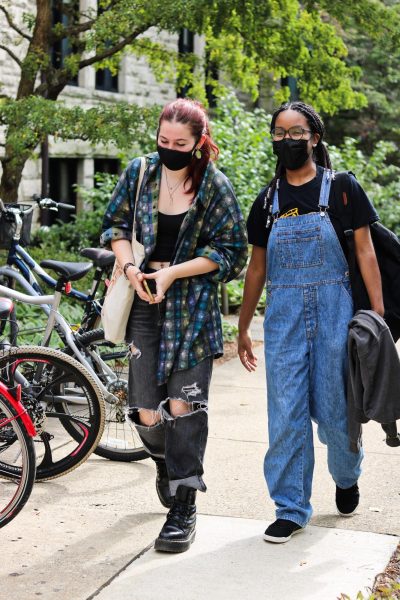Delivering Food to Isolating Students Should Be Paid Work
The Jan. 5 issue of the Campus Digest included a solicitation from the Office of the Dean of Students asking faculty and staff volunteers to deliver food to students who were isolating after testing positive for COVID-19. The announcement includes a link to a Google spreadsheet where volunteers can sign up for shifts. There are three tabs on the sheet, each representing one week of shifts. On this week’s page, only 19 out of more than 100 slots have been filled as of Wednesday afternoon. If this were a nonessential task, like delivering cards to bring some cheer to the COVID-19 positive crowd, that would be no cause for concern. The fact is, though, that students need to eat. Food must be delivered at regular times: For the sake of students’ health, that is not optional.
It seems strange that, given the difficulty students have had getting food delivered on campus during their quarantine periods, the College would think it prudent to rely on volunteers to ensure that isolating students are receiving basic nutrition on time. The vast majority of shifts that were picked up this week were picked up by staff rather than faculty. The staff alone cannot carry this burden, but it is also unreasonable to expect that the already overworked and underpaid faculty will complete this work without compensation.
Last week, the Review published a motion that a group of faculty had brought to the General Faculty Meeting on Wednesday, Dec 15. The motion called for a return to the 2013 plan committing the College to “raising faculty salaries to the median of Sweet-16 compensation and defin[ing] raising salaries as a ‘strategic indicator’ of Oberlin’s success,” as well as the choice between Preferred Provider Organization and High Deductible Health Plans.
“If we are, as is often said, faced with an existential crisis, then the real existences of individual faculty members — their daily lives, their health care plans, their retirement benefits, and their highly trained, expert understanding of the core values of the College — must be given priority, including funding priority,” read the motion, penned by the College’s chapter of the American Association of University Professors. “No amount of fiscal austerity, admissions campaigns, administrative restructuring, and web redesigns will assure the long-term survivability of the College if we are unable to hire and retain the best, the brightest, and the most socially aware to our faculty.”
The truth is that it is the faculty that makes the College what it is. We’re a small liberal arts college in a suburb 30 minutes outside of Cleveland, Ohio. The quality of the faculty and the classes they teach are what make our institution something to be proud of. Our faculty already put countless hours into providing us with an exceptional education, and many of them sacrifice chances to work at other institutions where they would receive significantly better salaries and benefits. To ask — and even expect — them to donate their time delivering food to isolating students is unreasonable and, frankly, insulting.
There are plenty of nonessential jobs that the College is willing to pay students for, and those are the ones that get filled. Executive Functioning Tutors? Covered. Writing Associates? Done. Peer Advising Leaders? There’s usually a waitlist. Even though this work is not essential per se, it is extremely valuable to the College and to other students. My PAL made my transition to College significantly easier, and I had a great experience getting help on a policy memo in the Writing Center. Many of those jobs could probably be filled — at least enough to keep the programs healthy — without paying students because they look good on a résumé, but the College recognizes the value of those positions and the effort students put into providing those resources and compensates them accordingly.
Why, then, should the College not compensate faculty and staff for taking on extra work? While this was understandably not predicted, it’s not unreasonable that after almost two years of this pandemic, the College would have learned that they need to set aside money for situations just like this. Our faculty and staff have been working overtime, pulled in a million directions to keep everything running smoothly for us during these past 22 months, and compensating them fairly is the least the College can do in return.




